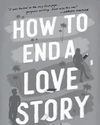Prøve GULL - Gratis
How Nature Journaling Can Help Your Writing
Writer’s Digest
|July - August 2024
As writers, we want to transport our readers to the world we are describing or creating on the page.

To invoke this sense of immersive reality, we need to conjure our written world with evocative, multi-sensory detail that immediately resonates with our reader. This is true of every genre, from nonfiction through realistic fiction, and even the created worlds of science fiction and fantasy.
To write it, we must know it. To know it, we must observe it with all of our senses.
However, even when we spend quite a lot of time somewhere, it can be surprisingly hard to truly observe a place. Even something that strikes us as profound or unforgettable can be difficult to recall in detail after the moment has passed.
With nothing more than a pen and a notebook, nature journaling can help you slow down and engage in child-like fascination—and create a reference you can call upon to bring your reader into the worlds you build on the page.
GET STARTED
Start with what you have, and try new things as they strike your fancy. The perfect tool is the one that you will use.
What to Bring
At the most basic level, all you need is something to write and draw with and a notebook to write and draw in. Choose a notebook you can use comfortably when sitting down and writing on your lap. If your notebook isn't hardbound, a clipboard or other hard surface will help.
Creature comforts: a hat, sunscreen, bug repellant, snacks, and a beverage.
Nice, but not necessary: a pair of small binoculars, a hand lens, a small ruler or measuring tape, a small set of watercolors or colored pencils, and a camp stool.
An old backpack or tote bag is handy to carry your things. Don't use anything you would regret getting some mud or dirt on. We're going outside; that's where mud and dirt live.
What to Wear
Denne historien er fra July - August 2024-utgaven av Writer’s Digest.
Abonner på Magzter GOLD for å få tilgang til tusenvis av kuraterte premiumhistorier og over 9000 magasiner og aviser.
Allerede abonnent? Logg på
FLERE HISTORIER FRA Writer’s Digest
Writer’s Digest
100 Best Markets for Writers
A list of print and online publications looking for freelancers to contribute their knowledge on everything from pet care to finance and beyond.
65 mins
Yearbook 2026

Writer’s Digest
Memoir Plus
Add a bonus to your personal narrative for a marketing boost.
8 mins
Yearbook 2026
Writer’s Digest
Surefire Ways to Sell Your Children's Book
In my 28 years editing children's books, I've learned that publishing exists at the intersection of art and commerce.
5 mins
Yearbook 2026
Writer’s Digest
The ABCs of Freelance Success
Many freelance writers, especially those at the beginning of their careers, tend to place almost all of their professional focus on one specific component: craft.
5 mins
Yearbook 2026

Writer’s Digest
How to Write in Different Genres
Emiko Jean and Yulin Kuang share tips and strategies for how they successfully write in different genres and mediums.
8 mins
Yearbook 2026
Writer’s Digest
Small But Mighty
Why small presses might be the perfect home for your book.
8 mins
Yearbook 2026

Writer’s Digest
The Story Behind the Story
What's backstory, and what's it doing here anyway?
6 mins
Yearbook 2026

Writer’s Digest
2025 Year in Review
Publishing expert Jane Friedman recaps the biggest news in the industry.
8 mins
Yearbook 2026

Writer’s Digest
What Is Your Story Question?
When a story isn't working—when you know it's not quite coming together, when beta readers and critique partners confirm your fears but can't put a finger on why, or you're not getting offers from agents or publishers—savvy authors start trying to diagnose the issue by examining its component parts, like characterization, plot, and stakes.
6 mins
Yearbook 2026
Writer’s Digest
Writer's Digest 27th Annual 101 Best Websites for Writers
For the 27th year, Writer's Digest is shining a light on 101 websites with a goal of helping writers in a variety of ways.
26 mins
Yearbook 2026
Listen
Translate
Change font size

